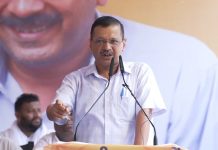
EDITED EXCERPTS FROM AN INTERVIEW
You have tried to maintain a “careful distance from the instrumentalist worldviews of foreign affairs pundits, security experts and financial analysts” while researching this book. Is there something restrictive about refracting your impressions of China through their distinctly utilitarian prisms? What do conventional narratives miss about China?
The conventional portraits and ideas of China are all filtered through particular prisms, whether they are of national security — which is the case in India at least, to a large extent, or even in the United States — economic rivalry and definitely military rivalry, increasingly, in the South China Sea. So much of the reporting you see on China in the American media is about China’s moves in those particular realms. What I really mean by getting away from that kind of instrumentalist view of China is becoming interested in how the Chinese look at themselves and how society looks at what kind of place it seeks for itself in the wider world. I think that’s an idea of China that can only be accessed through its literature, through its cinema and through its internal intellectual debates. For that, you really have to be interested in how the society sees itself and not what you want to get out of that society, because there is a big difference there.
“The idea of Asia,” you write, “has acquired a different coherence today. What connects geographically disparate experiences… is the late arrival of capitalism.” But when you compare India’s and China’s experiments with unbridled capitalism under Manmohan Singh and Deng Xiaoping respectively, what differences do you see?
Well, there are both differences and similarities. For one, the timeline started earlier in China. They started with rural reforms for much of the early ’80s, and the capital generated out of these experiments was used in bigger investments in factories and larger urban economies. The Chinese have maintained a lot of control over their industries and the state has a huge role to play in the functioning of the economy and in the way the banks are extremely intimate with the government. So in that sense, the Chinese model is not one of free market capitalism despite all the claims made for it by various American ideologues and free market fundamentalists.
With the other aspect of it, which is at the level of how this capitalism affects ordinary people, again the similarities are there, with the massive transitions that are now being made in both countries from agrarian economies to urban-centred industrial economies. China has been more successful in this regard, obviously, because they have had more time and have an export-oriented economy as well as a much bigger manufacturing space than India. Also, India’s transition from rural to urban areas has had a large impact, much like China, which has gone ahead and built these large cities expecting rural migrants to come and occupy them. But China is now full of ghost cities, which aren’t inhabited by anyone because they have built these cities but not created jobs. At some point in the book I call Narendra Modi an exponent of capitalism with Chinese characteristics, by which I mean his model is one of incorporating government land or other resources and giving them to various crony capitalists. That’s also a very Chinese tactic, one which is the biggest source of social unrest in China. So there are similarities and differences at various levels.
The rationale behind Deng’s modernisation was that a population in thrall of the benefits of capitalism would not agitate for political liberties. Has that worked beyond an extent?
It was an implicit pact, and it has worked better than anyone thought, because we don’t really see much sign of a middle class aspiring for radical democracy or radical political change at this point. It is definitely agitating for certain rights and is very much against corruption and environmental destruction and often pours into the streets to protest against specific issues. But I think there is an issue between that and asking for a change of regime, which is a very radical thing to be asking for in a context like China. I think most people in China — certainly most of the urban middle class, which, as you know, are the most political actors of any society — have experienced continuous improvement in their lives over the last 20 to 30 years. You have to remember that China suffered a great deal in the last century or so, much more than India, with civil war, the Japanese invasion and the various disasters of the Mao era. Whatever has happened in the past 30 to 35 years has certainly made people look forward to a better future for their children. So if you have those high degrees of contentment with your own life, it is very difficult to actually create a political platform or movement for greater democracy. It is also true that many more freedoms have been made available to the Chinese, to consume, to travel, and I think they have substituted for broader liberties that are available in Western countries.
In your chapter on Wang Hui, you mention how the New Left sees the Chinese Communist Party (CCP) as an agent of change. What role do you see the Party playing in the inevitable struggles over civil liberties?
It’s a very complicated issue, because the party is certainly not a monolith, more so now. There is much more information available on the party and the recent power struggles within the party have been more in the public eye, most prominently the corruption trial of Bo Xilai, the governor of Liaoning. So we now know a little more about how these things work. It’s not a monolith; there are various factions within the party with very distinct political views and there are also, of course, a lot of opportunists who will go with whoever is powerful at any given point. I think their expectation is that the party has to be the agent of change because there is no coherent opposition, no one who can guide China through this very delicate, and indeed very volatile, stage in its economic transitions, which mind you is not complete yet. Many people are still living in extreme poverty because the urbanisation process is incomplete yet. The Chinese leaders themselves admit that the economy is unsustainable, it’s uncoordinated and there are a lot of problems with this kind of shift away from the investment-led model to one based on more domestic consumption.
With these problems, many people think that only a coherent organisation like the CCP can actually guide China through this particular moment, and that you can’t overnight have a political movement or a party or even a whole system of organisation led by technocrats who can do that. The party is continuously reinventing itself, with more and more technocrats in positions of authority. If you look at the people who came into power with Ji Xingpeng and the kind of degrees that they have, there is a huge change from the leaders of previous generations.
I think one of the sources of the confidence in the CCP is that the experience of the Soviet Union’s implosion was a very traumatic one for many Chinese. I think the message they derived from the advent of Boris Yeltsin and the complete decimation of the Russian economy of the 1990s was that they cannot afford to have that kind of chaos disorder in China. The New Left argument is that if you have that kind of disorder and chaos then you will end up with more authoritarianism, much like Vladimir Putin coming in to restore order and basically becoming this despot and even less accountable than many of his predecessors. So that’s really the thinking, which is not to say that one endorses it, but I think it’s important to enter the particular experiences and subjectivity of these people, whether it’s the New Left or the liberals or the Maoists to understand where they are coming from, what is shaping their particular thinking, rather than simply insisting that they be democratic in the way you prescribe.
The Party is, of course, an essential pillar in the lives of the millions of Chinese living in the provinces, as well as their primary antagonists, with all the collateral damage of modernisation. Do you see potential for more confrontation between the two beyond simple protests against local authorities?
Obviously, the leaders are extremely aware that there is a huge problem with the image of the party right now. There are far too many corrupt party leaders, especially provincial party leaders, who have made massive fortunes. There is a very strong attempt now to curtail these folks and to crack down on some very highly placed leaders and officials. There is a great concern that the party has to be seen as the great protector of the Chinese people, a great provider of welfare, also a party that is clean and not corrupt, because if you don’t have elections, what is the source of legitimacy? Its source of legitimacy is the image that it is synonymous with the people and essentially protecting their interests, which means you can’t afford to be seen as completely disconnected. There are many examples around them; they have monitored every little revolution and uprising that has happened in the world in the past 10 to 15 years and learnt that an elite that looks disconnected, corrupt and simply repressive cannot last. This is really not the age of old-fashioned straightforward despotism. You have to do a lot more with keeping the people happy and on your side, and I think there is definitely a very defined awareness of all that within the Chinese leadership.













